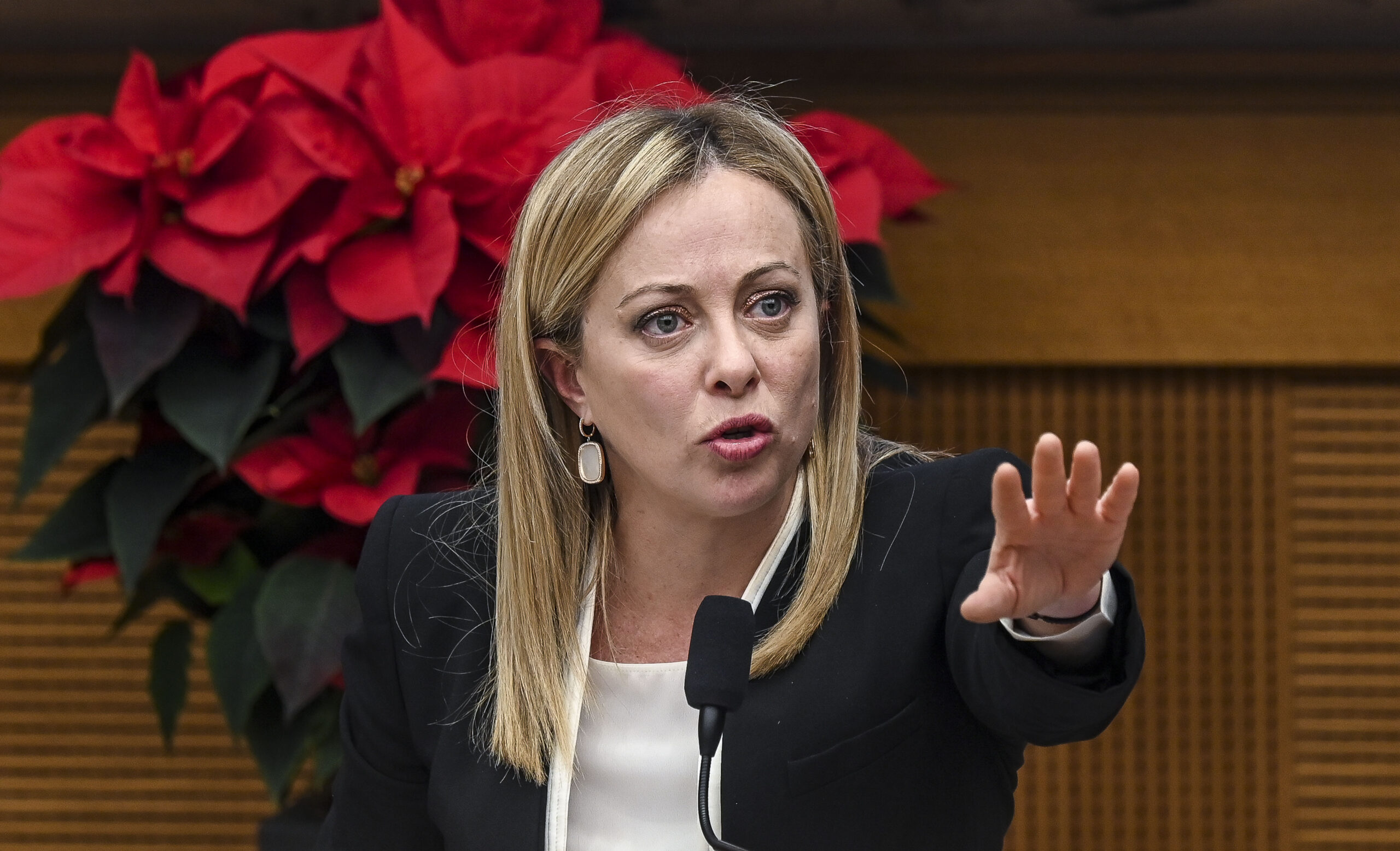State aid, because Meloni attacks the France-Germany axis

Giorgia Meloni is against the easing of European legislation on state aid to respond to American subsidies: she fears an imbalance in the single market which would favor France and Germany. All the details and context
Speaking to reporters in Algiers, where she went to work on the creation of a "Mattei plan" for the Mediterranean , Prime Minister Giorgia Meloni criticized the European Union's response to the Inflation Reduction Act . It is the great US law on subsidies for "green" manufacturing that risks depriving the Old Continent of a solid industrial base in sectors crucial for the ecological transition: electric vehicles, batteries, wind turbines, solar panels and green hydrogen, for example.
Attracted by the favorable context – there are not only the incentives of the Inflation Reduction Act, but also much lower energy prices – several European companies such as Northvolt, Iberdrola or Enel are giving priority to investments in the United States.
WHAT MELONI SAID ABOUT STATE AID
“It is worrying”, said Meloni, “that the EU thinks it can solve the problem of the low competitiveness of our companies, even in the face of the huge investments of the USA in their companies, only with a relaxation of the legislation on state aid. It would lead to a distortion of the internal market”.
ONE STEP BACK: THE EU PLAN ON GREEN INDUSTRY
Of the European Commission's plan to reduce Europe's competitive disadvantage compared to America we know the name ( Net-Zero Industry Act ), the main creator (the Commissioner for the Internal Market Thierry Breton) and its general line: to offer European companies of subsidies to be used to finance the "sustainable" conversion of their production processes, in order to put them in a position to compete with rival US companies and maintain investments in strategic sectors on the continent.
THE PROPOSAL OF FRANCE
France has drawn up an industrial policy plan, called " Made in Europe ", which it would like to see implemented at the Community level: it leverages, in particular, on the relaxation of the European legislation on state aid, so that governments can support some sectors key in the medium term (until 2030).
WHAT VON DER LEYEN SAID
The Commission itself proposes to temporarily modify the rules on state aid to adapt them to the international context, aiming to make it easier for member states to finance companies in difficulty with public money.
In fact, President Ursula von der Leyen said that “to keep the European industry attractive, we need to be competitive with the offers and incentives currently available outside the EU”. He has proposed a simplification of state aid rules and a new European sovereign wealth fund that will provide both loans and grants.
THE POSITIONS OF GIORGETTI AND URSO ON STATE AID
However, the position of the Commission – and of France – on subsidies does not convince all European countries, especially those of northern Europe attentive to the protection of free trade. Denmark's Economy Minister, Troels Lund Poulsen, commented as follows: "I don't think that new models of massive state aid are useful for Europe".
The idea of a looser revision of the community legislation on state aid was also contested by the Minister of Enterprise Adolfo Urso. Last month, interviewed by Omnibus , he declared that such an intervention "could aggravate the European question, because there are countries like Germany that have important and significant resources to invest, and other countries like Italy […] that have no these national resources to invest. As on the energy front, we would find a Germany that subsidizes businesses and therefore creates a competitive advantage” compared to the Italian ones. It is the same concept reaffirmed in Algiers by Giorgia Meloni.
Even the Economy Minister Giancarlo Giorgetti, speaking at the "Economy and Finance" Council (ECOFIN) in mid-January, had said – as reported by David Carretta, Radio Radicale correspondent in Brussels – that loosening the European rules on state aid in response to Inflation Reduction "is not a solution" and which would aggravate the economic divergences in the Union and the fragmentation of the internal market.
EQUAL CONDITIONS
The fear of smaller or less financially sound European states is that easing state aid rules will favor wealthier and better-resourced nations, such as Germany and France, which will be able to support their companies con somme ben al di sopra delle possibilità di altri paesi. In short, the risk, in the absence of guarantees of equality, is that state aids will end up creating imbalances in competitiveness within the single market.
Of the €672 billion in state aid that the Commission approved in 2022, as much as 77 per cent came from just two countries: 53 per cent from Germany and 24 per cent from France. Italy is worth 7 percent.
THE DIFFERENCES BETWEEN FRANCE AND GERMANY
On the European response to the Inflation Reduction Act, however, France and Germany do not think exactly the same way. In fact, while Paris insists on the establishment of a new European sovereign wealth fund to subsidize green industry, Berlin is more sceptical: it does not consider it a necessary instrument because it would involve the issue of new common debt.
This is a machine translation from Italian language of a post published on Start Magazine at the URL https://www.startmag.it/primo-piano/giorgia-meloni-aiuti-di-stato-ue-francia-germania/ on Tue, 24 Jan 2023 08:54:19 +0000.
